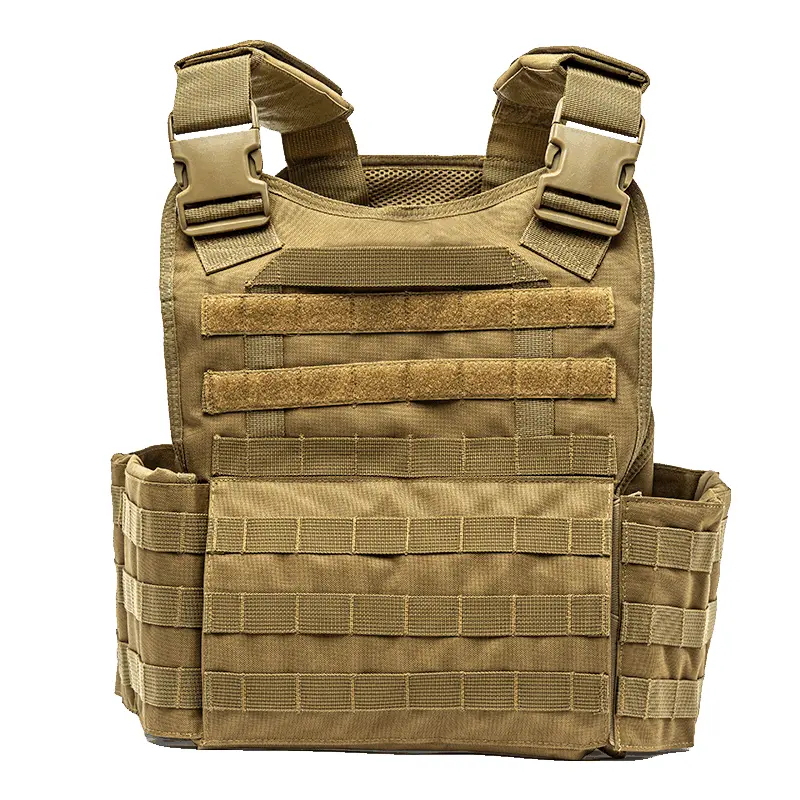the creator of the modern bulletproof vest from freeamfva's blog
Ramin Bahrani on his new documentary about the creator of the modern bulletproof vest
First responders, law enforcement, soldiers and even journalists use bulletproof vests, but very few people probably know how some of these lightweight pieces of armor came to be. In a new documentary, we get a shocking look at the now-defunct bulletproof vest manufacturer, Second Chance, that modernized the vests and the larger-than-life personality behind the company. Ramin Bahrani is the director of the documentary, also named "2nd Chance," and joins us now. Welcome to the program.To get more news about bulletproof tactical helmet, you can visit bulletproofboxs.com official website.
RAMIN BAHRANI: Thank you. Pleasure to be here.

RASCOE: So the person who is really, I guess, the star of the documentary, if you want to call it the star, is Richard Davis, who founded the company Second Chance, which made bulletproof vests for the police, the military. Even former President George W. Bush wore one of his vests. What made you interested in Davis' story?
BARANHI: There were a lot of themes that resonated with me - the rags-to-riches story. He was a salesman, which I'm very attracted to the American salesman character, and the moral crisis that came to be at the center of the story. I was quite drawn to those things. I typically make fiction films. This is my first documentary, and a lot of my fiction films deal with those themes. So they seem to be presenting themselves here in a character, as you said, that is larger than life. So the myth of Richard Davis was also quite appealing to me.
RASCOE: Yeah, I mean, that's the thing about it. And I have to say, this is a man who shot himself in the torso almost 200 times to prove that his product worked. That's on camera. Did you get a sense of, like, why he did that?
BARANHI: We could say it's crazy or foolish or we could say it's brave, and his bravery created a device that saved thousands of people. And I like to think of it that way. It did because that bravery he demonstrated and his ingenuity - again, that rags-to-riches - that is something very positive. But next to it, there's a lot of wild things that become unearthed in the telling of this film that aren't so good. There are quite disturbing things he did. But again, to the myth-making - he made movies about all this, too. He made eight hours of film - marketing, propaganda. Some of them were quite brutal and fascistic, and some of them are hilarious and bizarre and camp and funny. It was kind of like, how could I not make the film about this guy?
RASCOE: It seemed to also be - not only was he focused on being a hero, being courageous. It seemed like part of why Richard Davis might have been searching for that is because of his relationship with his father, who was in, you know, Iwo Jima and, you know, was fighting in World War II and all of these things. But that relationship between Richard Davis and his father and then between Richard Davis and his own son is very interesting that you dive into in this documentary.
Post
| By | freeamfva |
| Added | Dec 7 '22 |
Tags
Rate
Archives
- All
- March 2025
- February 2025
- January 2025
- December 2024
- November 2024
- October 2024
- September 2024
- August 2024
- July 2024
- June 2024
- May 2024
- April 2024
- March 2024
- February 2024
- January 2024
- December 2023
- November 2023
- October 2023
- September 2023
- August 2023
- July 2023
- June 2023
- May 2023
- April 2023
- March 2023
- February 2023
- January 2023
- December 2022
- November 2022
- October 2022
- September 2022
- August 2022
- July 2022
- June 2022
- May 2022
- April 2022
- March 2022
- February 2022
- January 2022
- December 2021
- November 2021
- October 2021
- September 2021
- August 2021
- July 2021
- June 2021
- May 2021
The Wall